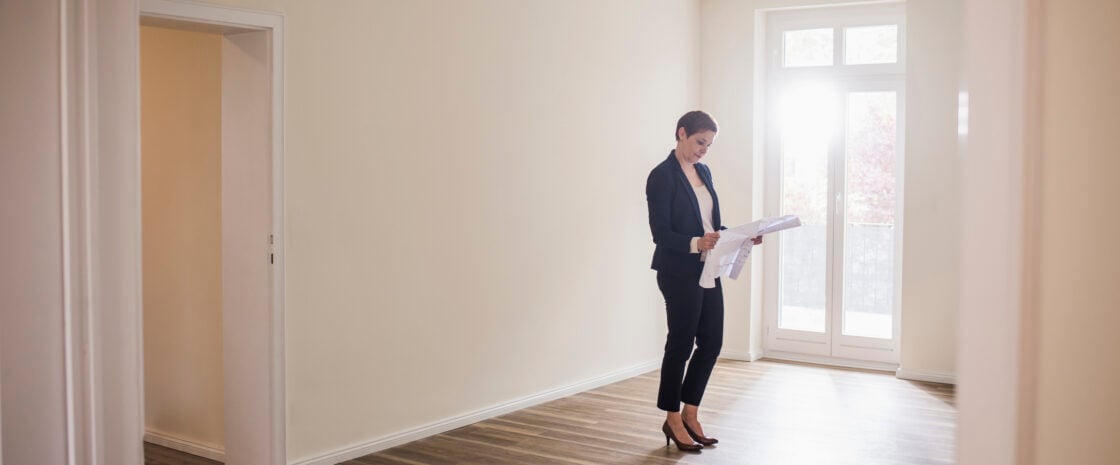As a buyer, you have every right to inspect the property you are purchasing before settlement. The pre-settlement inspection is when you can ensure it’s in the same condition as you agreed to in the contract before you finalise the purchase.
How does a pre-settlement inspection work?
The pre-settlement inspection is your final opportunity to identify any issues with the property before moving in after settlement day. It is essential to thoroughly check the property’s condition before completing the purchase.
While you should have already scheduled a building and pest inspection, there may have been new damage since the exchange of contracts. So, this final inspection is essential to catch anything you might have missed, no matter how small.
Of course, understanding the process of the pre-settlement inspection is important, but timing is also crucial.
When to do a pre-settlement inspection
There is no right time to get the final inspection done. Some experts recommend a few days before settlement to give the seller time to address problems. Others suggest getting the inspection done on settlement day itself because it is the most up-to-date inspection you can conduct.
Either way, you should probably aim to get it done no more than a few days before settlement if possible. This may involve some coordination with the seller or their agent. So, the earlier your conveyancer or settlement agent organises it, the better.
Pre-settlement inspection checklist
You can be as comprehensive as you like with your inspection, and you should allow enough time to be thorough. Key areas to check include:
- Power points: Electricals, utilities, light switches, exhaust and ceiling fans, dimmers on lights, telephone lines, Wi-Fi connections.
- Plumbing: Toilets, sinks, baths and showers, taps (hot and cold), water filtration systems and plugs.
- Fixtures: Locks, door handles, windows, windowpanes and window locks, stoves, cooktops, ovens, built-in appliances, heating units, flooring (carpet, linoleum, parquetry, floorboards), stairs, fireplaces.
- Fittings: Blinds, curtains and smoke alarms.
- Outdoor areas: Lawns, sheds, footpaths, the letterbox and doorbell, garage, remote sensing or security features, rubbish bins.
- Inclusions or exclusions in the contract of sale: Basically, anything present that shouldn’t be, or missing items that should be there.
- General damage: New leaks, mould, marks and stains, leaky or broken taps, light fittings.
To be fully prepared, bring a smartphone or camera to photograph any issues, along with a notepad and pen. Double-check that any issues flagged in earlier inspections have been addressed. Have your solicitor or settlement agent with you, along with a copy of the contract of sale, in case there’s anything that needs clarification.
Know your rights and resolve any issues that arise
When you inspect the property, it should be in the same condition as described in the contract of sale. If it isn’t, you have rights.
Should you find an issue, inform your solicitor immediately, and they will notify the seller’s solicitor. It’s crucial to address the problem as soon as possible. Once settlement is complete and you’re the new owner, the seller may be less willing to cooperate — especially if they’ve already banked their money.
Legally, the seller is required to fix any issues with the property before settlement. Minor problems, like fixing a power point or leaking tap, are usually straightforward. In most cases, the issues that arise are so insignificant in the grand scheme of things that both sides can easily come to an arrangement. If the toilet is broken, for example, you and the seller might agree that $400 is fair compensation for calling out a plumber.
However, in extreme cases, major problems are uncovered and the property no longer conforms with the contract of sale. In such cases, your solicitor can request a second inspection to give the seller enough time to repair the damage. Remember, you’re under no obligation to complete the purchase at settlement until that issue is remedied.
Buying a home is a significant financial commitment, potentially spanning 30 years, so take your final inspection seriously. Consistently seek expert advice throughout the process and fully understand your rights. Doing so will help make sure the property lives up to your expectations as a first home buyer.
DIVE EVEN DEEPER

Costs To Know When Buying a House
Costs to consider when buying a house include stamp duty, mortgage registration fees, and conveyancing costs.

How To Get A Home Loan
The home loan application process can be thorny. Here’s how to approach it.



